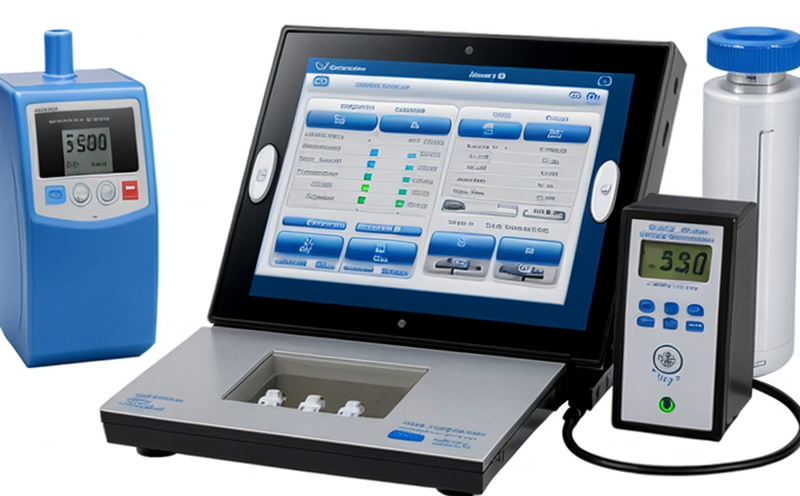ISO 14971 Risk Management Verification Testing for Infusion Devices
The International Organization for Standardization (ISO) has established ISO 14971 as a global standard for the application of risk management principles in medical devices. This service focuses specifically on verifying compliance with these standards for infusion pumps and drug delivery systems, ensuring patient safety and regulatory compliance.
Infusion devices are critical components in modern healthcare, responsible for delivering precise dosages of medication or fluids directly into a patient's circulatory system. The reliability and accuracy of these devices can significantly impact patient outcomes. Therefore, rigorous testing is essential to identify potential risks early in the product lifecycle.
Risk management involves identifying hazards associated with infusion pumps and drug delivery systems, evaluating their severity, and implementing controls to mitigate those risks. ISO 14971 provides a structured process for this activity, which includes:
- Identification of the device's intended use.
- Evaluation of potential hazards and adverse events associated with the product.
- Determination of risk acceptability based on risk assessment results.
- Implementation of controls to manage identified risks.
- Verification that these controls are effective as designed.
The testing process for infusion devices under ISO 14971 involves multiple stages, each tailored to address specific aspects of risk management. It begins with a thorough review of the device's design and intended use, followed by hazard identification, risk analysis, and finally, verification activities aimed at ensuring that implemented controls function as expected.
Key components of this testing include:
- Detailed evaluation of mechanical integrity, electrical safety, and software functionality.
- Evaluation of user interfaces to ensure they are intuitive and safe for intended users.
- Testing of drug delivery accuracy under various conditions to verify consistency with labeled claims.
The testing process is comprehensive yet highly specific to the unique characteristics of infusion devices. It ensures that every aspect of the device's design, manufacture, and operation contributes positively towards achieving safe patient care without compromising efficacy or usability.
Applied Standards
| Requirement | Description |
|---|---|
| Risk Identification | Detailed identification of all potential risks associated with infusion pumps and drug delivery systems. |
| Hazard Analysis | Comprehensive analysis of hazards to determine their potential impact on patient safety. |
| Risk Assessment | Evaluation of the likelihood and severity of identified risks. |
| Risk Control | Implementation of measures to reduce or eliminate recognized risks. |
| Standard | Description |
|---|---|
| ISO 14971-1 | Risk management process for medical devices. |
| ISO 80601-2-31 | Particulars of performance and test methods for infusion pumps. |
| ASTM F2796 | Standard practice for the design, development, and testing of implantable drug delivery systems. |
Customer Impact and Satisfaction
Our ISO 14971 risk management verification testing ensures that infusion devices meet stringent regulatory requirements, enhancing patient safety while maintaining operational efficiency. By adhering to these standards, our clients can confidently introduce innovative medical technologies into the market.
This service not only supports compliance with international regulations but also fosters trust among healthcare providers and patients. It enables organizations to demonstrate their commitment to quality assurance and continuous improvement in product development processes.
Moreover, successful completion of this testing process helps reduce the likelihood of recalls or adverse events post-market release, thereby protecting both brand reputation and public health interests. Our team works closely with clients throughout each stage of the verification process, ensuring alignment between technical specifications and business objectives.
Environmental and Sustainability Contributions
Incorporating ISO 14971 principles into medical device design and manufacture supports broader environmental sustainability goals by promoting efficient resource use throughout a product’s lifecycle. By minimizing waste generation during production and disposal stages, manufacturers contribute positively towards reducing carbon footprints.
The rigorous testing protocols employed in our service also encourage the development of more sustainable products through iterative improvements based on validated performance data. This approach aligns with global trends toward circular economy practices within healthcare industries.





